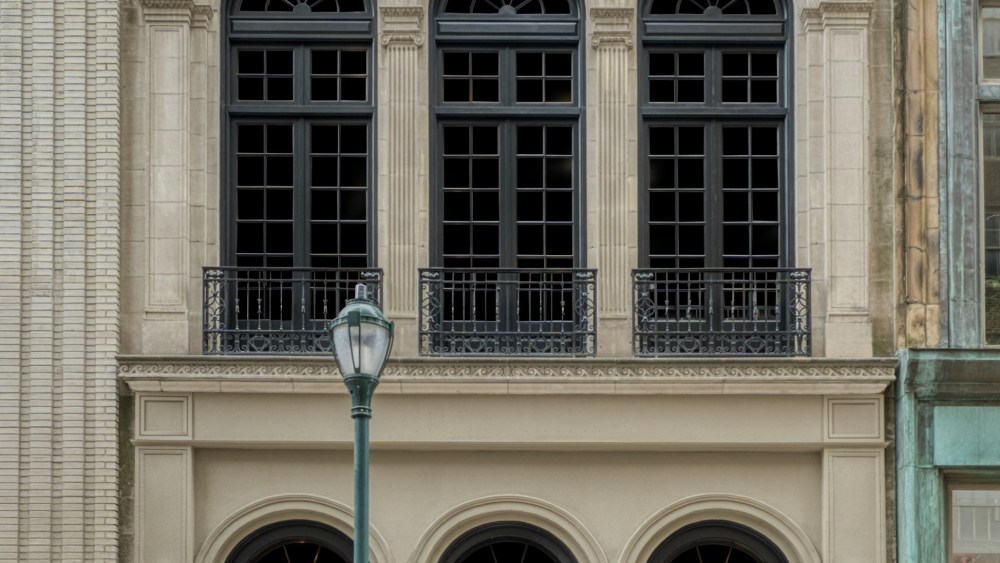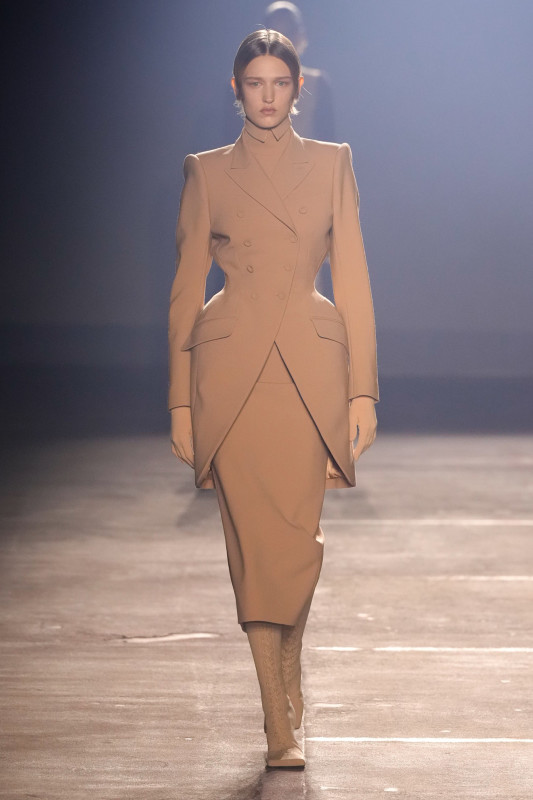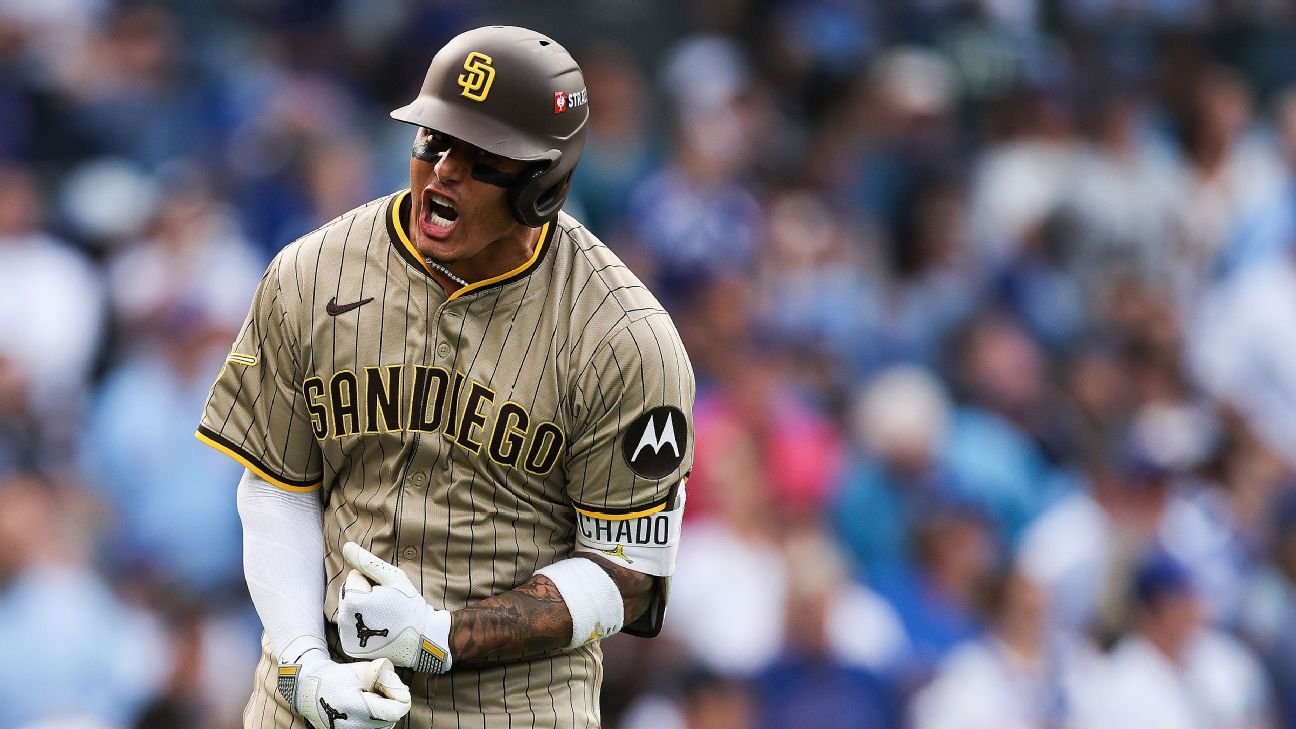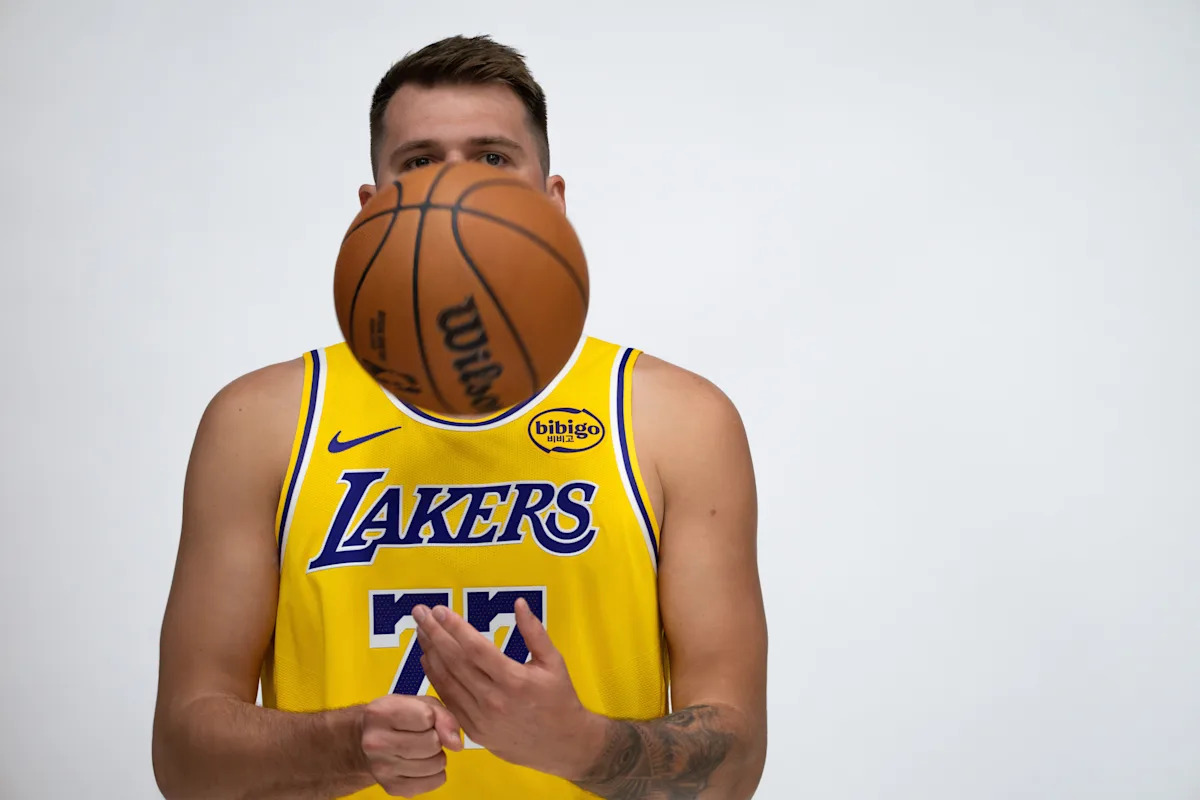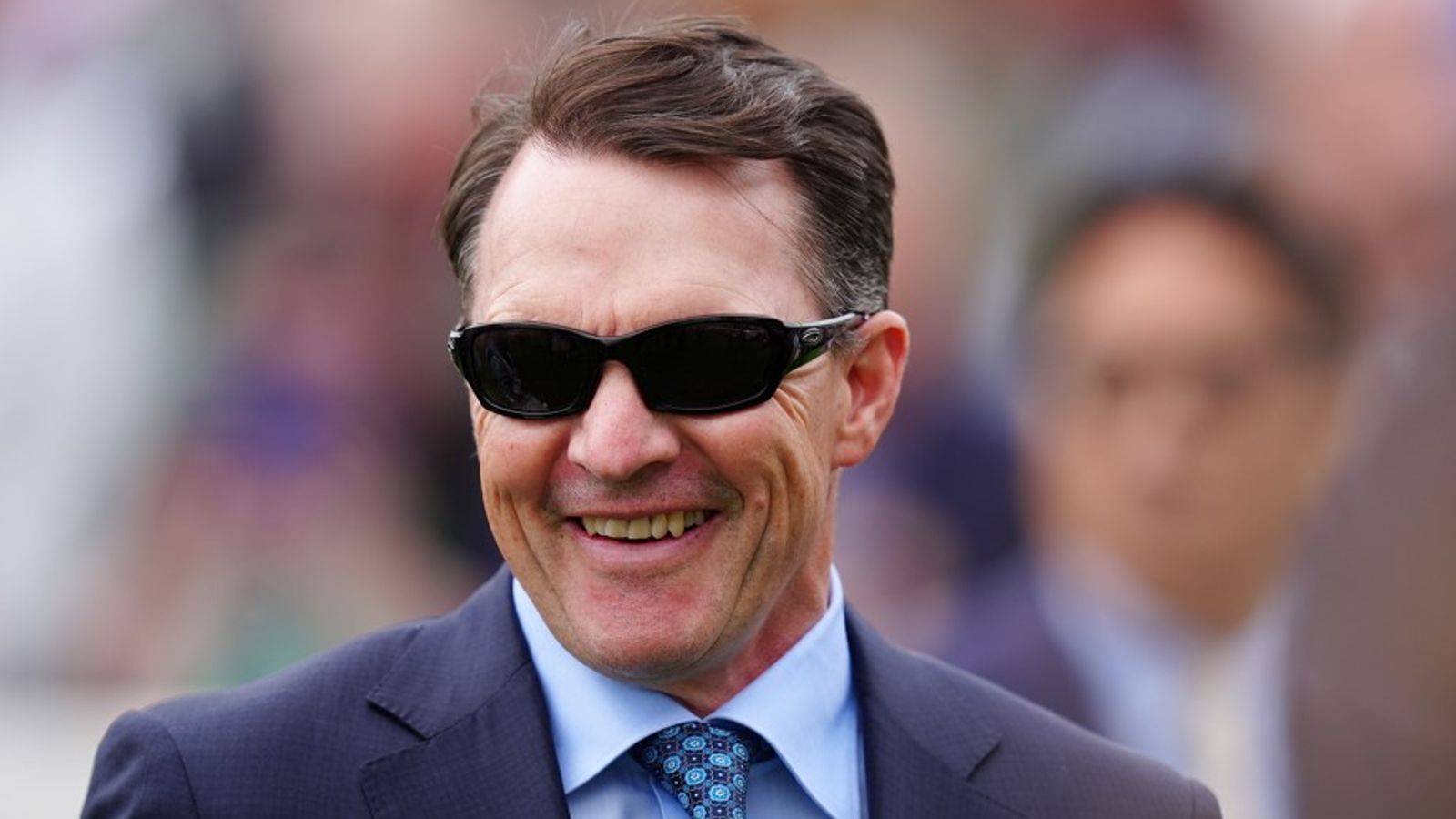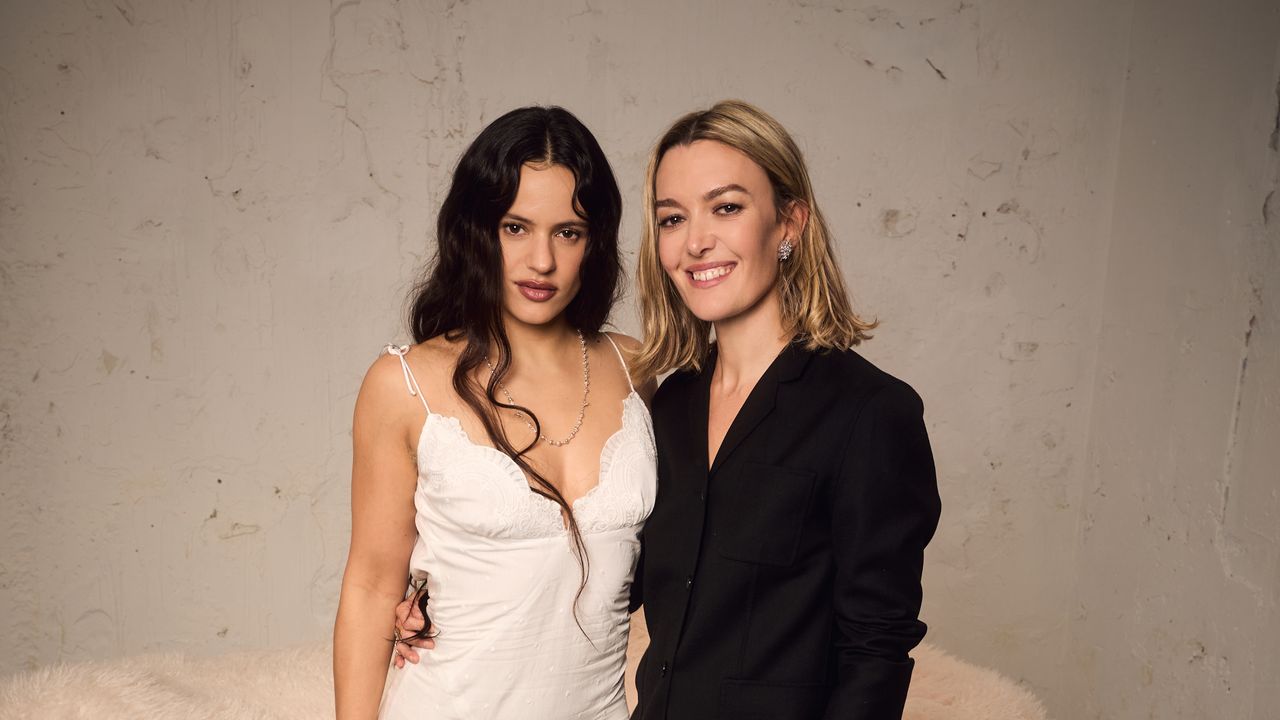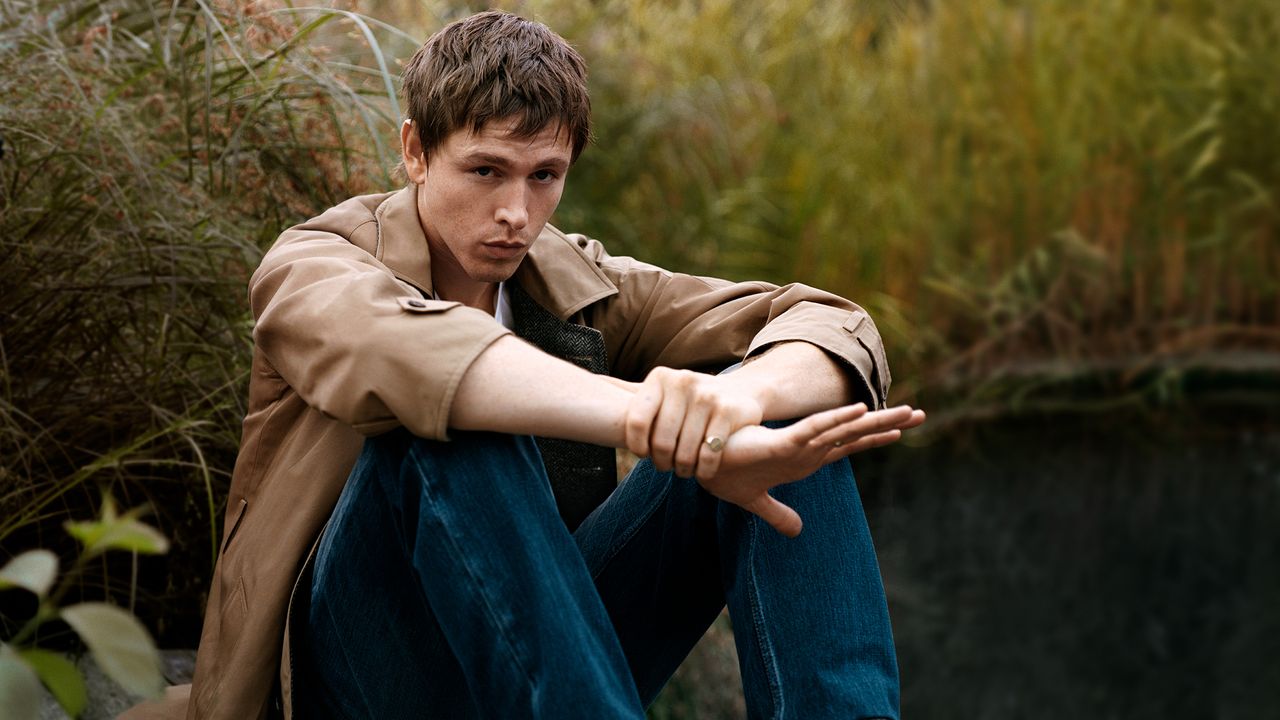
“Whatever I can do to try and shout about issues, I’m going to do it,” he says. “It’s not a big deal for me to wear a fucking T-shirt on a beach, you know what I mean? I think we’re getting to a time when people need to be called out. They need to be exposed. We are past the point where politicians get to just get away with stuff.”
We’re into the complex issue of class, and Dickinson represents a dwindling breed of British actor: the kind of working-class leading men like Albert Finney and Terence Stamp—or more recently, James McAvoy and Clive Owen—whose humble beginnings informed the kind of films they signed up to. A 2024 report by Britain’s Labour Party found that nearly half of British nominees for leading cultural awards, including the BAFTAs, were privately educated, and after 14 years of Conservative rule in the UK, sources of arts funding that provide a pipeline for actors of all backgrounds to enter the industries have been dramatically slashed.
When I ask Dickinson about all this, he takes a moment to consider his reply. “You see it a lot,” he says. “You see privilege prop people up in various ways, and I don’t blame anyone for that. But it’s difficult if someone has not got the support network or if they’ve not got the financial means to sustain themselves while they’re trying to build a career in a notoriously, at times, inaccessible industry.” How do filmmakers and artists of any kind sustain themselves while things are waiting to get made? “Or potentially not getting made,” he says. “How does one do any of that without support?”
Those who know Dickinson well or have worked with him return to the same theme: “Humble and very grounded,” says Reijn. “Humble and very kind,” says Pearch. “I trust him implicitly,” says Dillane. “He’s navigated this world so beautifully.” Part of that lies in the way he instinctively maintains his privacy: Though he’s happy to answer any question, his one request (made with the utmost politeness, of course) is that I don’t get too specific about where his office is. He has no issue waxing lyrical about Gray, for instance, whose debut album was released earlier this year to general acclaim; when we meet, he’s quick to tell me she’s over in the US supporting Kesha on tour. “I love gassing her up,” he says, grinning from ear to ear. “I’m her number one fan. When I see Rose up there doing her thing, I’m just in awe of it, really.”
And next up, of course, is Sam Mendes’s epic four-part Beatles film series, in which Dickinson plays John Lennon. Though he’s currently many weeks into rehearsals, he still sounds surprised that he was even cast in the project. “I think when [Sam] came to me and we spoke about the film, I never expected John Lennon to be the person that he said,” Dickinson says. “I think it took me a while to get my head around him as a person to tap into. I think I had immediate imposter syndrome. But Sam has just been phenomenal. He’s such an intelligent, kind man—the best person to do this, and such a fan as well.” How has it been, working with the other three actors: Paul Mescal, Barry Keoghan, and Joseph Quinn? “Yeah. Yeah.” He considers his words (and probably the NDA) before replying, with a knowing smile: “They’re all right, those guys.”
#Harris #Dickinson #Leveled #Actor #Feature #Filmmaker #Urchin


